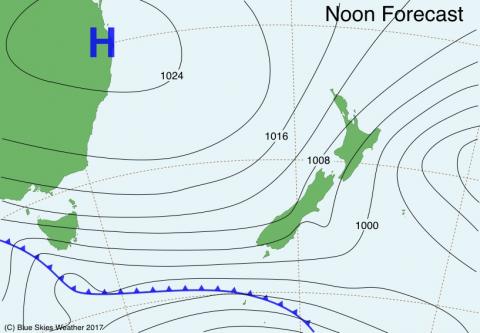-
More
Weather Forecast
- What's On
- Programmes
- Noticeboard
- Tuning
- Services
- DVD Shop
- About
- Home
- Business
Tuesday 05th July, 2016
The country's dairy and seafood exports are propping up the economy while forestry remains largely unchanged.
Overall goods exports rose 3.7% last month, up $179m.
Seafood prices led the growth, gaining over 8%, buoyed by an increase in the price of hoki and squid.
The meat and aluminium sectors also fared well with increases of around 2% respectively.
Thursday 30th June, 2016
Thumb not available yet
It remains unclear whether the proposed merger between Silver Fern Farms and a Chinese investor is done.
Silver Fern Farms had till the end of June to satisfy conditions of the sale with China's Shanghai Maling Aquarius.
The Dunedin-based company insists the deal hasn't been derailed, but it's facing criticism from New Zealand First Leader Winston Peters.
He believes Silver Fern’s directors haven't acted in the best interests of the company, particularly by not seeking shareholder approval for a major transaction.
Wednesday 29th June, 2016
New statistics on Maori businesses are providing an insight into the economic strength of more than 1000 Maori authorities.
Maori assets grew 15.5% in 2014 to reach $15b.
It's the second reported year of asset growth with an increase of $1.6b the year before.
The main contributor to the growth was assets such as goodwill, trademarks, shares and long-term bonds and loans.
Monday 27th June, 2016
The ramifications of Britain's exit from the European Union is creating a lot of uncertainty for New Zealand markets.
However, Trade Minister Todd McClay has assured exporters New Zealand's economic relationship with the UK and Europe will remain the same for the foreseeable future.
He's currently seeking meetings with fellow trade ministers from both the UK and Europe.
The New Zealand dollar fell to a 10 day low against the greenback after the British public's vote, stoking uncertainty in financial markets.
Monday 20th June, 2016
A contract deadline is looming on a proposed merger between Silver Fern Farms and a Chinese investor.
The Dunedin-based company has to submit an application to the Overseas Investment Office before the end of June, in order to continue with the proposal.
The merger with Shanghai Maling Aquarius needs both OIO and ministerial approval before going ahead, but no recent work has been done on the application.
Shanghai Maling is bidding for 50% of the company, for a price of $261m.
Wednesday 15th June, 2016
Thumb not available yet
The total cost of the country's flag referendum has been released, with figures showing the project came in under budget.
The provisional cost has been revealed as $21.8m, almost $4m less than what was initially budgeted.
That's despite the late addition of the red peak option, which cost just under $270,000.
The most expensive aspect of the process was the first postal referendum, coming in at a cost of $9.
After two referendums, 57% of New Zealanders voted to retain the current flag with the remainder voting for the Kyle Lockwood alternative.
Wednesday 15th June, 2016
Otago's prospective home owners are experiencing the side effects of a drop in the number of properties for sale.
The median price rose by more than $13,000 compared to May last year, with prices rising 8% in Dunedin.
Sales across the region for May rose 32%, up almost 40% in Dunedin alone.
Regional commentator Liz Nidd says the region only has 11 weeks of inventory on hand.
She says it's unlikely the supply situation will ease until spring at the earliest.
Wednesday 15th June, 2016
Thumb not available yet
A community technology training network for people over 50 is feeling the pressure following the withdrawal of government funding.
SeniorNet recently lost $400,000 of funding from the Tertiary Education Council.
But with the ever-changing array of personal gadgets, the CEO says there's no end for their services in sight.
Monday 13th June, 2016
A buoyant housing market is helping to keep retailers busy around the country.
New data shows the value of spending through Paymark was 4.7% higher in May compared to the same time last year.
The data also shows a correlation between home loan growth, and spending at housing-related retailers such as building supply shops and furniture stores - home loans grew by 10%, and housing-related spending by almost 15%.
Friday 10th June, 2016
Three of the country's top banks have introduced tough new restrictions on home loans for foreign buyers.
BNZ, Westpac and ANZ say they'll cease lending home loans to foreign buyers, while also bringing in new rules for Kiwi borrowers living overseas.
Hopeful buyers on temporary resident visas will only be accepted if they have both a New Zealand address and a New Zealand-based income.
An ANZ spokesman says the changes are being made to ensure the bank is appropriately positioned in the current housing market, taking into account supply pressure in certain areas.

